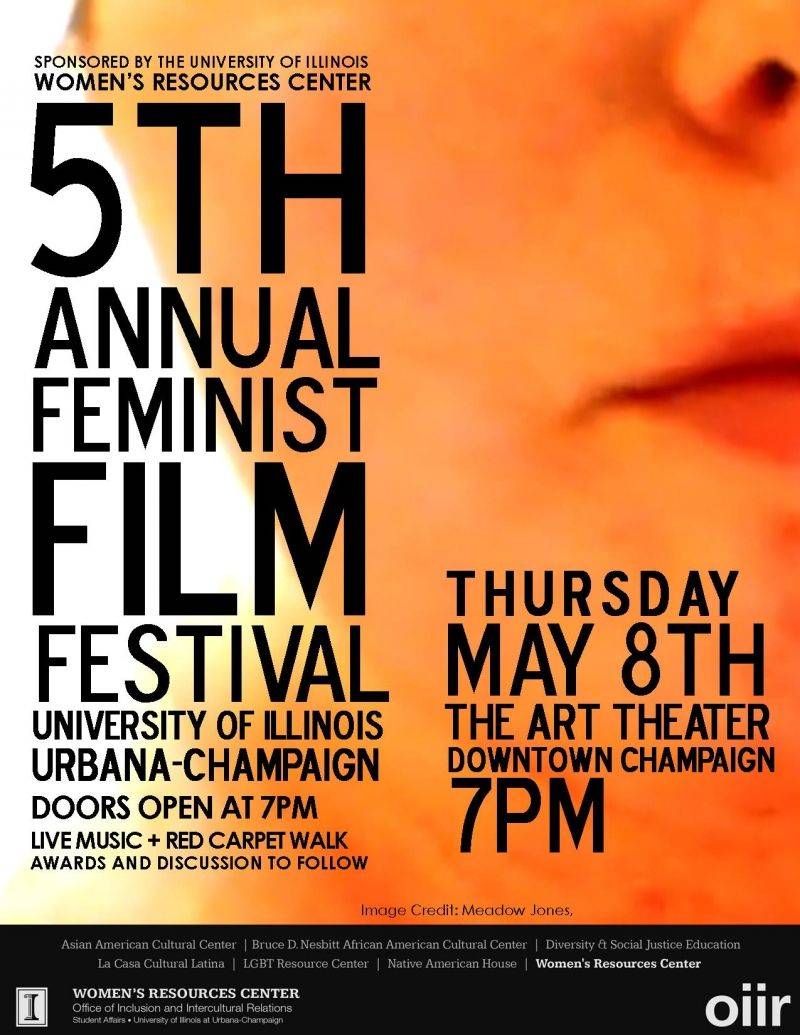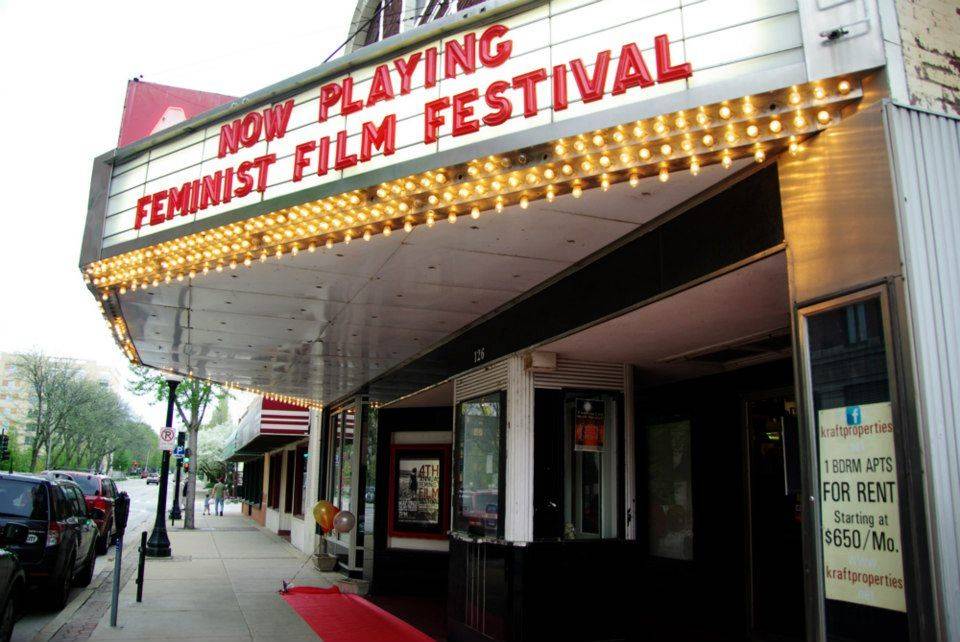
Thursday, May 8th, marks the the 5th anniversary of the Annual Feminist Film Festival, hosted by U of I’s Women’s Resources Center at the Art Theater Co-Op in downtown Champaign. The night starts at 7 p.m. and will consist of student-made short films (between five and 15 minutes in length) on topics such as current social issues. I talked to Rachel Storm, the assitant director of the Women’s Resoures Center, to learn more about the festival.
———
Smile Politely: For those who don’t already know, what is the Feminist Film Festival?
Rachel Storm: This year actually marks the 5th Anniversary of the Annual Feminist Film Festival! The festival showcases student short films between 5-15 minutes in length and is hosted by the Women’s Resources Center of the Office of Inclusion and Intercultural Relations. This annual event welcomes films from students, faculty, and staff at the University of Illinois Urbana-Champaign. People underrepresented in the media field are especially encouraged to submit a film to the festival. This is a grassroots event that utilizes art and alternative media to bring social issues into the fore. The goal of the festival is to showcase independent film spanning documentary, narrative, and experimental genres in order to explore perspectives often missing from mainstream media and culture.
SP: Where did the idea for the festival originate?
Storm: The festival began with the desire to give students a platform to use film as a medium to generate dialogue about social issues, intersectional feminism(s), and identity. Students are more technologically savvy than ever and with film as an enduring medium we knew it would open up more possibilities for meaningful conversations to emerge.
SP: What is your involvement with the project?
Storm: For the past five years, I’ve been the festival’s founder and lead organizer. I came into my role at the Women’s Resources Center with a strong interest in film and media studies—and its role as a critical medium. I’d made two of my own films during undergrad and wanted to create an ongoing film festival as part of the Women’s Resources Center’s ongoing programming.
SP: How does the Feminist Film Festival utilize art and alternative media to bring social issues to the forefront?
Storm: The Annual Feminist Film Festival, in its short 5 years of existence, has been able to generate dialogue on a myriad of social issues from women of color feminisms to LGBTQ inclusion, sexual violence to contemporary masculinities. We’ve had films that have critically examined marriage, sexuality, motherhood, gender expression, and other lived experiences. Some have given us new feminist superheroes to rally around and others have reminded us of the anti-oppression work that remains.

SP: What have festivals been like in the past?
Storm: The past five years have really shown the festival growing in interesting directions. Each year, our submissions continue to grow in number and quality. Each year, content shifts and changes. Last year, our films included stories of women from mythology, depictions of student activism and protest, environmental racism, women of color performance art, and experimental works on queer youth and sexuality. Our festival continues to push the boundaries of what constitutes a “feminist” film by inviting intersectionality, critiques of feminism, and creating space for the uncategorizable.
SP: What are you hoping for this year?
Storm: This year is our 5th Anniversary celebration, so our hope is that each film continues to inspire new film-making and position student films as sites for important dialogue to take place. We are extremely grateful for all of the support we receive for campus units and community organizations and specifically give our thanks to the Art Theater Co-Op and its General Manager, Austin McCann, for hosting us, as well as the staff of Shatterglass Studios that each year has assisted us in the overall production of the festival. Without these important collaborations, our festival wouldn’t be possible.
SP: Who can participate in submitting films to this festival?
We accept films from UIUC students—graduate, undergraduate, and professional students. We also screen up to 2 films from alumni each year, and this year was no exception! Our alumni films often allow for folks to showcase how their skills have improved since leaving the university. We’re always looking for films that sprout from an intersectional analysis of feminism, as that is at the core of the work of the Women’s Resources Center. In other words, we invite an intersectional feminism that assumes we can’t examine gender without examining how race, class, sexuality, religion, disability, ethnicity, and other social dynamics of experience impact one’s experience of gender. Thus, we advocate a feminism that draws upon larger discourses of power, privilege, and oppression.
SP: What weight does the title “feminist” hold?
Storm: Its distinction as a “feminist” film festival allows it to function as a space where the experiences of women and larger questions surrounding gender can be explored—especially as they relate to issues of power. Our festival specifically invites submissions from women filmmakers and films that speak to contemporary issues surrounding gender and social justice. In our submissions, we specifically invite films that examine: body image/self-esteem, violence against women, combating/resisting sexism, racism, ableism, classism, etc., media critiques,
gender fluidity, women in leadership, feminist superheroes, comics, etc., performance art on film, and subverting gender, binaries, or roles.
SP: What are the logistics of the event?
Storm: We seek films at the beginning of our spring semester and students must submit by the end of April. Following submissions, we have a judges screening and elect winners for the first five awards (the Audience Impact Award is decided the evening of the festival by audience members). Then, the night of the festival, we invite filmmakers, their guests, and the general public to attend and filmmakers participate in a Q & A after the festival, inviting dialogue to emerge on the content.
SP: Who does this event cater towards and what do you hope people take
away from it?
Storm: The Annual Feminist Film Festival caters to those looking to see a diversity of short films, locally grown and community-driven, that examine contemporary social issues and dynamics—local, national, and international. There’s a little something for everyone: documentary, narrative, and experimental film-making at its finest.
———
The event is free and will take place at the Art Theater Co-Op in downtowan Champaign. Doors open at 7 p.m. For more information, visit the event’s facebook page or hit the Art Theater Co-op website.








